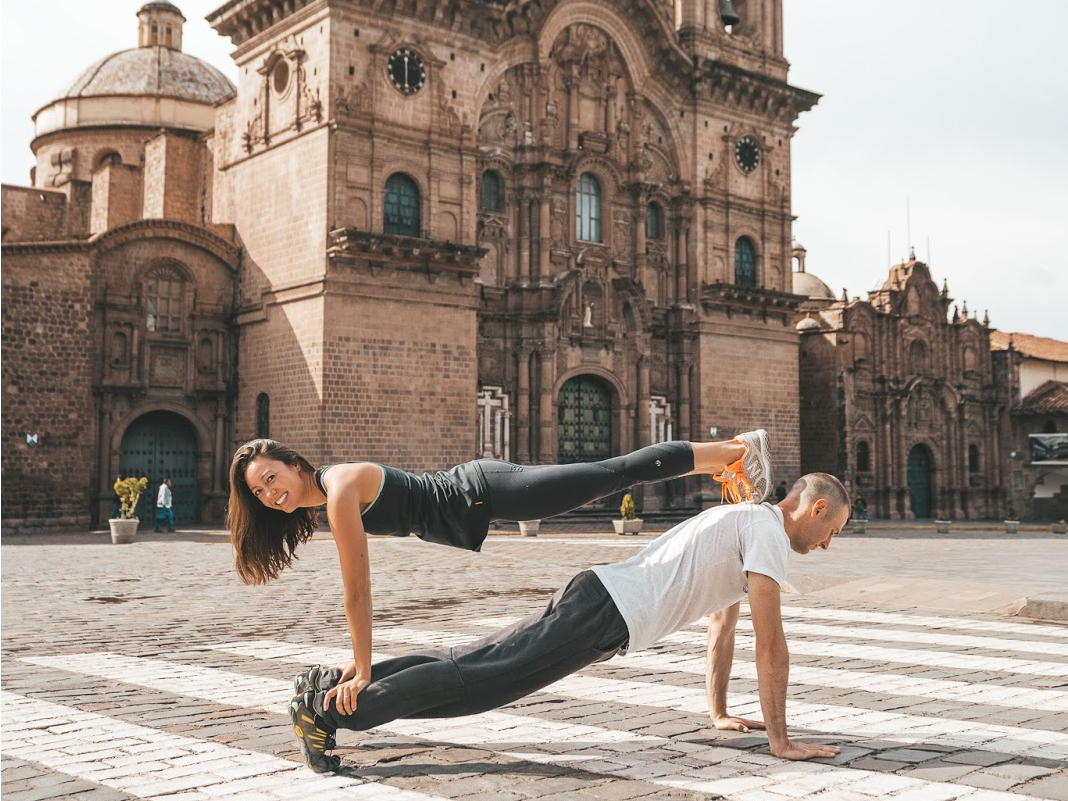- Ryan Gleason and Alex Davis are a husband-wife duo and “lifestyle engineers.” After eight years as corporate engineers internationally, Ryan and Alex left their high-powered jobs to tackle their true passion – leading couples to engineer their best lives through Ryan and Alex Duo Life.
- In March 2018, they bought a one-way ticket to Ecuador, and have been traveling in South and Central America since.
- Moving abroad actually helped them save money and gave them incentive to downsize. And they found a whole community of digital nomads.
- Visit Business Insider’s homepage for more stories.
It was early 2018, and I watched as Ryan, my new husband of three months, worked himself sick every day. On top of the sales territories he managed for a global chemical company, he worked a side-gig coaching job at a multilevel marketing company for hours into the night.
Before this, I knew how dedicated he was to both jobs – but it wasn’t until we were living together that I saw how much it consumed his time and sanity. I could see that he was near his breaking point – averaging just six hours of sleep per night, always stressed that he wasn’t giving his all to either job, and feeling his health impacted through low testosterone and adrenal fatigue. This wasn’t the newlywed life I was imagining; it was hard for us to spend quality time together, despite him being in the same room.
So, I pitched an idea: Let’s quit our jobs to travel and turn your health coaching side gig into a full-time business together.
After some convincing, my typically risk-averse husband agreed. We packed our bags and bought a one-way ticket to Ecuador in March 2018. We’ve been traveling ever since throughout South and Central America.
Usually, when people hear this, they think, "Oh, another entitled millennial couple traveling the world." Yet, what they miss is that traveling is the best opportunity to turn a side gig into a full-time business. Here's why:
1. Travel removes social pressure
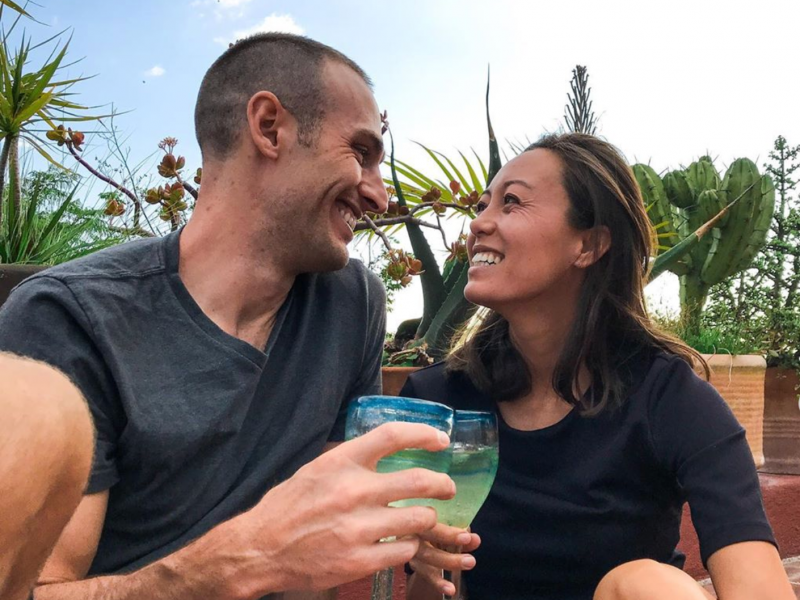
Multiple studies show that US entrepreneurship has been on the decline since the 1970s. Beyond the main culprits - like high taxes and even higher student debt - it's just plain intimidating to leave good jobs and start from scratch on a new concept. However, if we had taken the plunge back in the US, we would have felt social pressure to earn enough to continue maintaining the same lifestyle.
According to the Bureau of Labor Statistics, the average American household spends around $5,100 monthly. Even with just the two of us, our expenses were not far off. In our final two months in the US, we averaged over $4,000 in monthly expenditures, with nearly half of that going toward our rent. In comparison, our past two months in San Miguel de Allende, Mexico have cost us $800 a month. While our living costs have greatly varied between countries, without significantly altering our lifestyle, our cost of living is 20% to 40% of what it used to be.
We removed financial pressure by moving abroad. When traveling, we're in a unique environment where we're free to focus solely on our business and avoid feeling pressured to "keep up with the Joneses" - or, in our case, our prior lifestyle.
2. You save money to reinvest back into the business
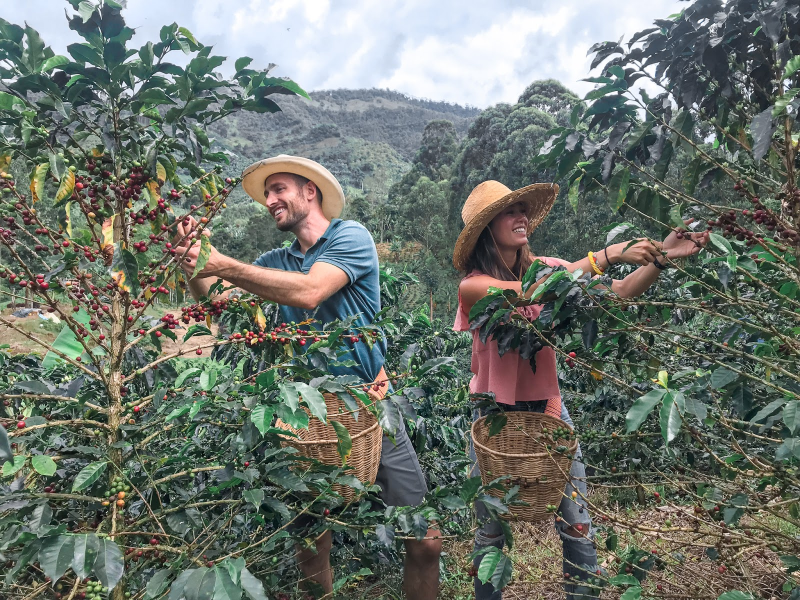
For less than the cost of our $1,500 monthly rent in Texas, we were able to rent an apartment in Medellín, Colombia, join a coworking office space, eat out nightly at phenomenal restaurants, attend weekly yoga classes, explore the Colombian countryside on weekend trips, and still have money left over to invest back into our business. Moving abroad gave us the incentive to downsize and create a tight budget framework to live by - and our dollars now stretch further than ever.
Our budget strategy changed based on the country we were in, taking into account ways to incorporate local culture to maintain a healthy work-life balance.
Here was our $1,200 monthly budget from Medellín, Colombia for the two of us:
- $500 in rent, including utilities
- $150 to join a coworking space, including their yoga classes
- $160 on restaurants and coffee shops
- $150 in fresh produce and groceries
- $20 on buses and taxis
- $220 on weekend trips and miscellaneous expenses
Other destinations, like Ecuador, Peru, Mexico, and Panama were less expensive and we could budget as little as $800 a month.
3. Traveling opens up new networks and connections
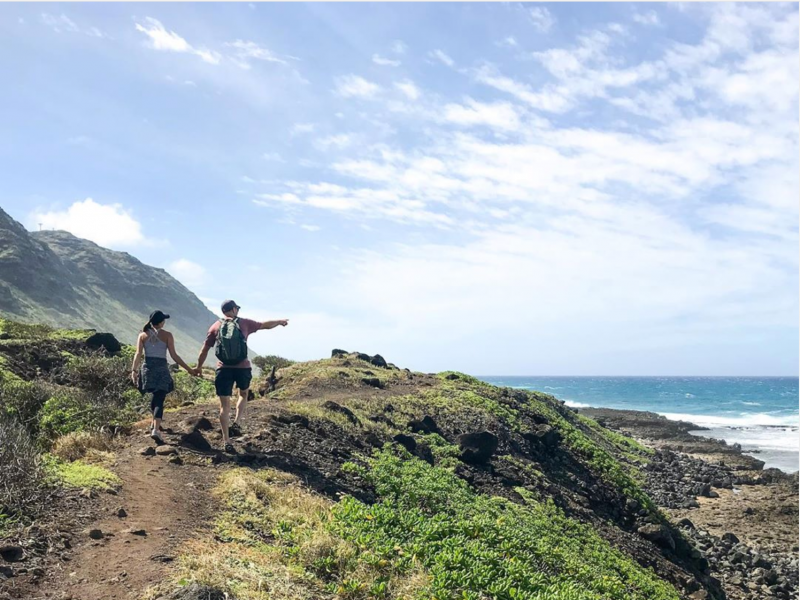
Ryan and I, both former materials engineers, had no experience or contacts in the "digital nomad" world. So, when we launched Ryan and Alex Duo Life, a company helping couples become healthier through fitness, nutrition, and relationship coaching, we started from scratch. Yet, as we began building our business in dozens of coffee shops and coworking spaces across South and Central America, we've had chance meetings with website designers, Instagram business owners, content managers, and marketing gurus. They've all helped us throughout the process, inviting us into their communities and networks.
4. If the business fails, at least you spent time learning and traveling
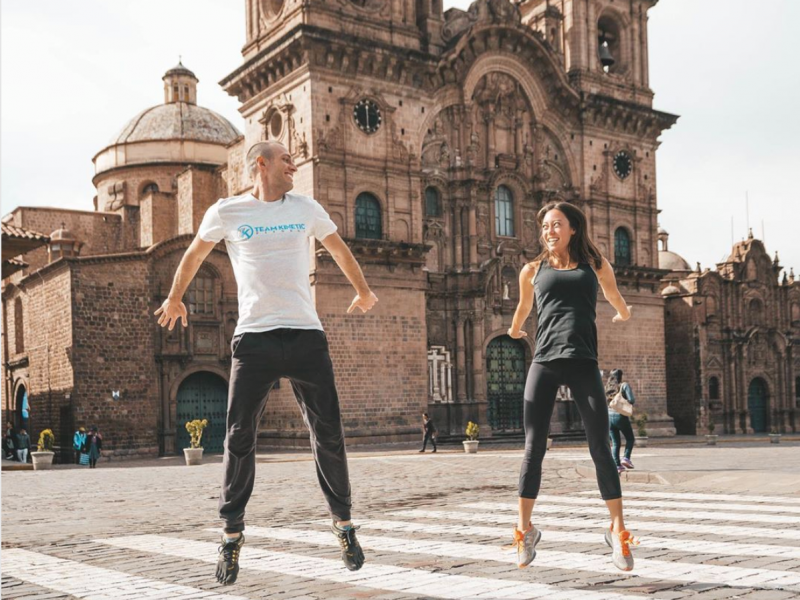
If that's all you got out of it, then we'd say it was still a win. You would have learned all the same hard business lessons as someone working from home, but it won't be as cutting because your time was simultaneously spent exploring new cultures and learning about yourself. So, if there comes a day when you have to walk back into a corporate interview, you can hold your head up high, knowing that you spent time not only working on your business, but also experiencing new cultures and methods of thinking. These experiences will propel you in any future endeavors.
Take our friend, Kai Du, who took a six-month sabbatical to travel the world in 2014. Upon his return to the corporate world, he leveraged his experience to change roles into global supply chain at Cartus. Soon after, he was recruited to join the supply chain team at Nike's international headquarters in Portland.
"During my interview, I talked about my past, my experience, and what I'm passionate about outside of work. I listed travel and even included pictures from traveling during my sabbatical. It was well received, and I got the offer an hour later. At the time, I hadn't realized it, but Nike's founder, Phil Knight, had taken a trip similar to mine in his youth, a six-month backpacking trip beginning in Southeast Asia. At Nike, there is a program where employees are given five weeks of paid sabbatical every five years, starting at their tenth year of employment. It's use it or lose it, so the company recognizes the time that you've been with them but also wants you to recharge. I think in today's world, where everything is much more globalized and connected, worldly experience is a positive. If you show up well at the interview and prove that you're qualified for the job, having a gap where you traveled would not be seen as a negative," Du said.
With the freedom to focus on our business, find our passions, and think creatively, we've expanded our business to Ryan and Alex Duo Life. Now, we create science-backed online programs helping couples get fit, lose weight, and strengthen their relationship.
After nearly two years on the road we're now settled in San Miguel de Allende, Mexico. We've never once regretted leaving our corporate engineering jobs behind.
